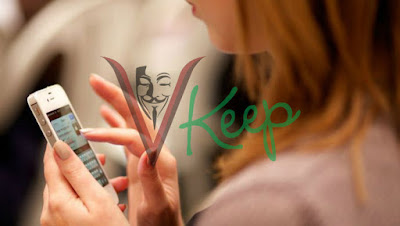So, you would think the idea of anonymous social media apps would miss the point in rather a big way. Surely, the appeal of Tumblr and Twitter is that we are noticed, that we connect on some simple level with the world at larger (even if it’s only to share an update on our kitten’s sleeping habits).
Still, the last couple of years has seen the launch of a variety of so-called anonymous gossip apps, each vying for the public’s attention. Apps like Whisper, Secret, and Yik Yak, have all hoped to emerge as the biggest thing since FaceBook and Twitter. But the big question is, “Does anyone really want to be anonymous online?”.
The Push for Anonymity
Most, if not all, secret-sharing networking apps are aimed at the youth market. The idea, at least in principle, is that users can vent their frustrations, complain about their teachers and bosses, and confess their obsessions and indiscretions from behind the cloak of anonymity.
Content is shared among a network of friends and acquaintances, but there is never any indication of who originated the post. Users can be completely honest, without any fear of being judged or even identified. While this may seem somewhat frivolous at first glance, the app developers themselves believe the anonymity factor encourages people to be more open and honest.
Indeed, Chris Bader-Wechseler, one of the designers behind the Secret app, sees online anonymity as a way to encourage whistle-blowers in the corporate world. Not long after Secret launched it was instrumental in forcing Nike to address rumors that company execs were about to fire an influential design team, and it broke the news of a Google execs’ impending resignation days before the company confirmed the departure.
Still, despite Secret’s early successes, and its appeal to younger social media users, the app has failed to find a dedicated audience, and after little more than a year on the open market Secret has been forced to close-up shop.
Anonymous Gossip Apps Fail to Find a Market
But Secret isn’t the only anonymous app that has fallen on hard times. While it is the first to go out of business, similar apps like Whisper and Yik Yak are struggling to maintain a viable user base. Earlier this year execs at Whisper announced that they had more than ten million registered users.
On the surface that sounds respectable, but in the world of social media, where users can number in the hundreds of millions, that is a less than spectacular performance. Whisper’s difficulty finding a place in the market may indicate a trend away from anonymity on social media.
The Whisper app, which at first looked so promising, is now struggling to stay in the top 1000 free apps in Apple’s App Store; and its major rival Yik Yak is fairing little better, barely managing to remain in the top 500.
Is Anonymity Overrated?
The hurdles facing Secret and other anonymous networking apps may be endemic to social media itself. People turn to FaceBook and Instagram because they want to connect with others. They want to be seen and heard in an increasingly faceless society.
The very essence of social media is to generate attention for the users, not to deflect that attention away from the authors of any given post. True, the ability to make comments online and still remain anonymous may have a limited appeal under certain distinct circumstances, but it ignores the basic foundations of the social media landscape.
People flock to FaceBook and Twitter to see and be seen. Even when we are at our worst, complaining, venting and ranting, we all hope, in our heart of hearts, to be noticed for who we are and not be just a nameless voice in the digital crowd.


0 comments:
Post a Comment